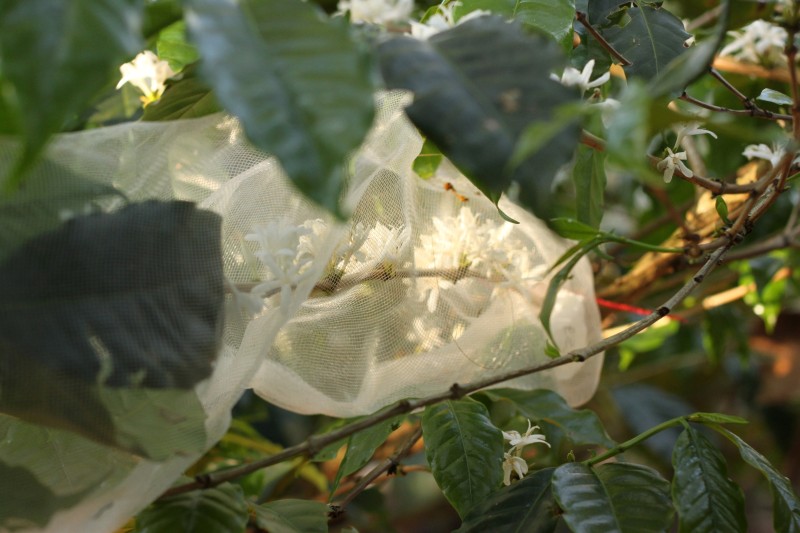We're open daily! View holiday hours
Science News
Healthy Ecosystem, Better Harvest
February 11, 2014
by Molly Michelson

We often underestimate the value that nature provides within an ecosystem. Not just to other wildlife, but to humans as well.
A team of German researchers set out to measure the value of birds, bats, and bees on coffee plantations around Mount Kilimanjaro in Tanzania. Farmers grow a large amount of coffee on the mountain, using both traditional and more conventional plantation methods.
The most traditional form of cultivation can be found in the gardens of the Chagga people. Here the sun-shy coffee trees and many other crop plants thrive in the shade of banana trees and other tall trees. The conventional coffee plantations in the area also feature many shade trees, but these are progressively being chopped down because of the increasing replacement of “conventional coffee varieties, which rely on shade, by varieties that tolerate lots of sun and are more resistant to fungi,” explains the University of Würzburg’s Ingolf Steffan-Dewenter.
This crop intensification is expected to result in higher yields. But the researchers wondered if the plantation harvests might stagnate instead: if there are only few shade trees left, the habitat may become unsuitable for the animal species that pollinate the coffee, eat pests, and actually improve the yield.
So the team conducted experiments in twelve areas on the slopes of Mount Kilimanjaro, located in all three cultivation systems (Chagga gardens, shade plantations, and sun plantations). They used finely woven nets to prevent access of birds, bats, and insects to the coffee flowers—or even to entire coffee trees. They then examined how the presence or absence of the “animal service providers” affected the quantity and quality of the harvest.
The results revealed that where birds and bats had access to the plants, there was almost a ten percent higher fruit set. “We believe that this is due to the fact that the animals eliminate pests that would otherwise feed on the coffee plants,” says Julia Schmack of the Research Institute on Organic Agriculture. Reduced leaf damage likely reduces the number of coffee cherries falling from the tree while ripening.
The pollination experiments showed interesting results as well: bees and other insects should actually be redundant here, as the examined coffee variety, Coffea arabica, is self-pollinating. Yet, the researchers found that if pollinators have access to the coffee blossoms, the cherries were about seven percent heavier, which contributes to a higher coffee quality.
“So the effects of pollination and pest control complement each other perfectly; both are important for higher yields,” says Steffan-Dewenter: “Birds and bats provide more cherries; bees and other pollinators ensure better quality.”
Surprisingly, however, this particular case of intensified farming seems to have had no negative effect: the impact of the animal provided services on the harvest was equally good in all three cultivation systems, even in the unshaded plantations. “We put this down to the mosaic landscape structure on Mount Kilimanjaro with its gardens, forests and grasslands,” says the doctoral student, Alice Classen, also of the University of Würzburg. Given that much of the landscape is divided into small parcels, pollinators, birds and bats still could find a suitable habitat with nesting places, and from there spread into the plantations.
The research is published online this week in the Proceedings of the Royal Society B.
For more information on the value of ecosystem services, check out this recent video produced by the California Academy of Sciences for the Khan Academy.
Image: Coffee plant with net surrounding blossom, Alice Classen